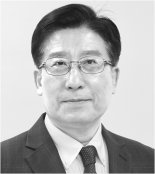[Noh Dong-il Column] Dropping the Daejang-dong Appeal: What Matters Is Public Sentiment
- Input
- 2025-11-17 18:45:04
- Updated
- 2025-11-17 18:45:04

The Daejang-dong case involved Dong-gyu Yu, then head of Seongnam Urban Development Corporation (SDC), and private business figures like Kim Man-bae, conspiring to divert astronomical profits that should have gone to SDC. The first trial verdict noted that "Mayor Lee Jae Myung may not have been aware" of these actions. If true, the act of deceiving the mayor and siphoning off profits among the businesspeople is what should truly provoke outrage. The first trial's acquittals on charges of aggravated breach of trust and violation of the Conflict of Interest Prevention Act, as well as the imposition of a 42.8 billion won forfeiture on Kim Man-bae and none on Nam Wook, are particularly unsatisfactory. The Prosecution Service should have appealed and pursued the case until Kim Man-bae and others were thoroughly ruined, as President Lee would have wanted. There was no need for intervention; by convention, this was a case that should have been appealed.
Woo Sang-ho also remarked, "President Lee would gain no practical benefit from intervening in the trial." I concur. The first trial verdict stated, "At the time, Mayor Lee Jae Myung was likely unaware of the extent of collusion between Dong-gyu Yu, Jeong Jin-sang, and private businesspeople, and was relatively free to decide on the method of land acquisition." If this is accurate, Lee Jae Myung, then mayor of Seongnam, cannot be found guilty of breach of trust. There appears to be no reason for the appellate court to reach a different conclusion. Furthermore, according to Woo's plan to "legislate a replacement for the breach of trust charge anyway," the trial of President Lee, which may not even resume after his term, has been turned into a political issue.
Woo Sang-ho's remarks likely reflect President Lee's intentions. It is hard to imagine a presidential aide making public comments that do not align with the president's wishes. This is why the actions of Minister of Justice Jung Sung-ho and the Democratic Party of Korea (DPK) are difficult to understand. Minister Jung claims he never instructed anyone not to appeal, only that he advised careful consideration. Even if taken at face value, whether it was an order or advice, the fact remains that there was interference. Involving oneself in a matter with neither reason nor benefit only served to unnecessarily escalate the situation.
The response from the DPK is even more perplexing. Chung Cheong-rae, the party's leader, criticized prosecutors opposing the decision to drop the appeal, calling it a "disruption of state discipline." Kim Byung-kee and other DPK leaders accused prosecutors of insubordination. Refusing a legitimate order from a superior constitutes insubordination. Are these comments based on the assumption that there was an order to drop the appeal? The DPK has reduced the Prosecution Service's special activity funds from 7.2 billion to 5.2 billion won and even suggested withholding such funds from offices where chief prosecutors participated in collective statements. They are also pushing for legal amendments to demote chief prosecutors to regular prosecutors and allow for their dismissal.
If Woo Sang-ho's words are not empty, these are actions that the Office of the President of South Korea should reprimand or stop. It is not the first time there has been discord between the Office of the President and the party. President Lee's UN speech, which should have drawn public attention, was overshadowed by the party's theatrics surrounding Chief Justice of the Supreme Court of Korea Cho Hee-dae. The positive atmosphere created by the successful hosting of the Asia-Pacific Economic Cooperation (APEC) summit was marred by the party's controversy over the law to suspend trials. It was only after an official statement from Chief of Staff Kang Hoon-sik that the situation was resolved. The aftermath of dropping the appeal should not be left unchecked. Politics that threaten and pressure prosecutors and the Prosecution Service have veered off course.
Woo Sang-ho prefaced his remarks on the broadcast as his personal opinion. However, such statements should be made officially. The party must be warned and the issue resolved so that it does not continue to escalate over a matter with neither reason nor benefit. If that is not enough, Chief of Staff Kang Hoon-sik should step in again. President Lee and the DPK may enjoy stable approval ratings, but this is largely thanks to a disorganized opposition. According to a Gallup Korea survey of 1,003 people nationwide from the 11th to the 13th, 48% said dropping the appeal was "inappropriate," far outnumbering the 29% who said it was "appropriate." Whether true or not, public sentiment is clearly outraged by the narrative that dropping the appeal made criminals into billionaires. Every time headlines such as "Nam Wook, with zero forfeiture, puts up 50 billion won worth of land in Gangnam for sale" appear, public sentiment will be shaken. I trust that they understand it is public sentiment, not the opposition, that deserves the most attention.
[email protected] Reporter